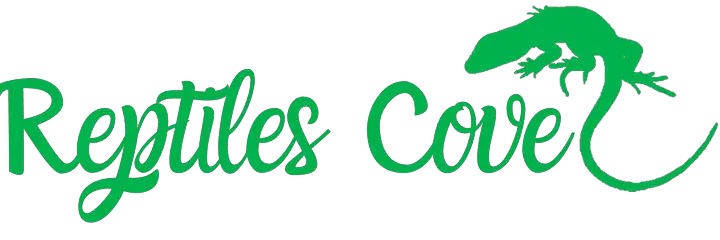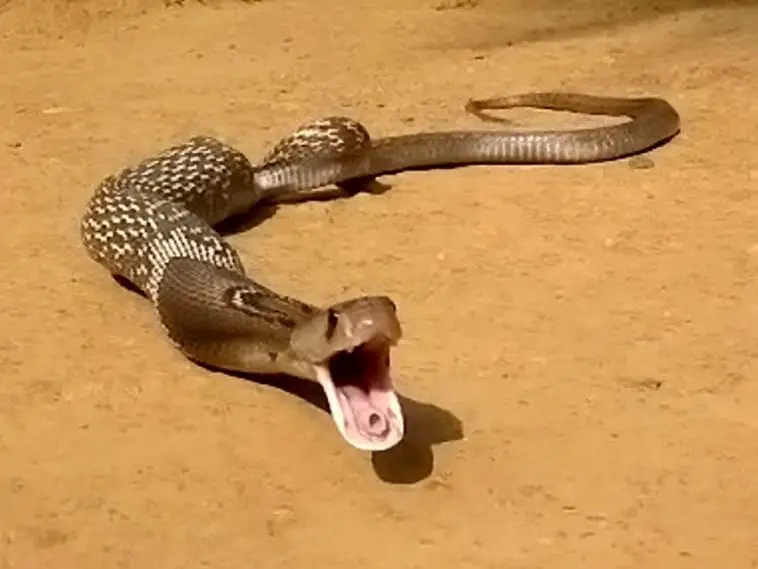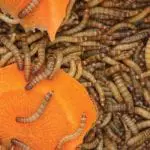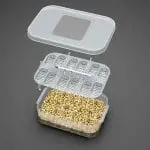Overfeeding and choking are two of the most common eating problems a snake encounters. Both of these problems are fatal if not attended to properly. As a responsible owner, you should have knowledge about the proper way of introducing food to them. There are different causes of overfeeding and choking that you just need to master. In this article, we’ll give you an overview of overfed and choking snaking and what are the workarounds.
Signs of Overfed and Choking Snake
You can easily see signs if your snake is overfed, the most common are overweight or obesity. If your snake is overweight or is already obese, they look bloated because of their bulky belly, and oftentimes, they are a formation of a mass or food bolus in their stomach that may cause paralysis in their hindquarters because their spinal cord holds a lot of pressure. If they feel so heavy because of excessive weight, they may have a hard time moving that restrain them from their normal activities.
On the other hand, when your snake is choking, it is advisable to attend to it immediately since it is fatal. The food that chokes them may block the air passageways that hinder them from breathing properly. They may gag or cough to release the food and often accompanied by a mucous. In extreme cases, when their food is not cleared, they may lack appetite in eating and drinking that may be a cause of dehydration.
Common Causes of Overfed Snakes
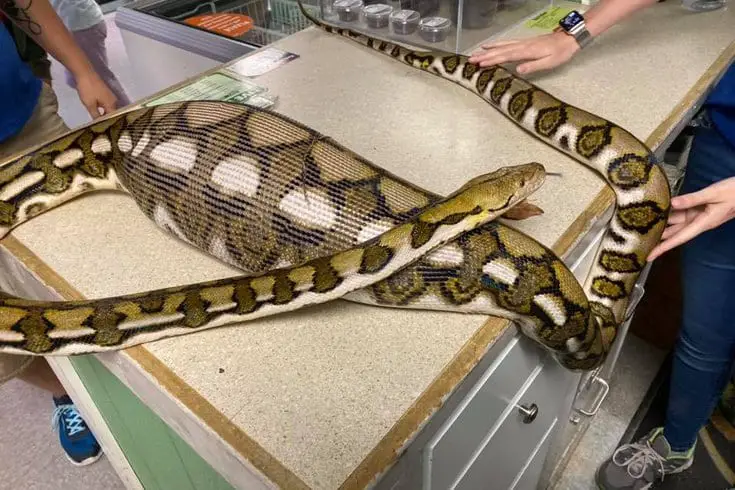
1. Feeding on a daily basis
The snakes have a slow metabolism; that is why it takes days for a single food to be fully digested. If you are to feed your snake on a daily basis, the food will just pile up into their stomachs, making them extremely bloated.
2. The size of the food is too big
The snakes have the ability to swallow large prey, but however, there are some cases wherein their food won’t go down to their stomach smoothly; that is why it causes choking. It is important to observe your snake while eating so that you could attend to them when they choke.
3. Digestive problems
The snakes naturally have a slow metabolism. When they have digestive problems, it could be difficult for them to digest a certain amount of food, leading to overfeeding.
Common Causes of Choking Snake
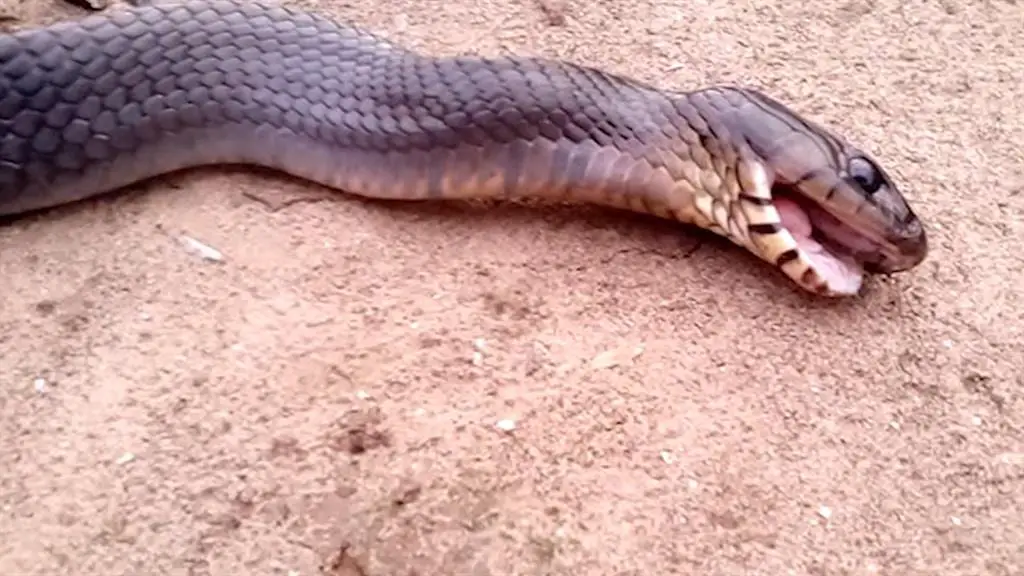
1. Respiratory Illnesses
When your snake is suffering from respiratory illnesses, there is a high possibility of choking because they have constricted airways due to the disease that makes it difficult for them to swallow and constrict their prey, especially if it is livestock or animal.
2. Swallowing large prey
Large prey does not intimidate them; they are known to feed on domesticated animals such as cats, dogs, pigs, and other animals that have irregular skin or feather texture that has spikes, thorns, etc. Snakes have the ability to stretch out their jaws to accommodate the size of their prey. There is a high possibility of choking if the prey is still alive upon swallowing it because of the prey’s fighting actions to fight for their lives.
3. Give them cleaned prey
In the wild, they use to eat prey that is raw, some with feathers and furs. In captivity, avoid giving them prey that has still feathers and furs to avoid problems swallowing it. One cause of choking is when a part of the prey parts get stuck into their stomachs.
How to Avoid Overfeeding Snakes
- Feed on a schedule. You need to follow a feeding schedule, especially when you are to feed an adult snake since they have a slow metabolism. You may need to feed the juveniles more often but in small portions.
- Feed them with the right amount. The amount of food that you will give to your snake depends on their age, size, and weight. You are not feeding your snake on a daily basis, so make sure that the food that you will be giving them would be enough to make your snake alive for a couple of days or weeks. Younger snakes need to eat more frequently since they need it in their growing process.
- In extreme cases wherein the snake has already eaten the food or the prey, which is too big for them, it will be removed manually by a veterinarian within hours of swallowing it. The snake will be sedated and use an endotracheal tube to lubricate the prey back into the snake’s mouth. This procedure is life-threatening; that is why it is the only practiced if it is a matter of life and death situation for the snake.
How to Avoid Snake Choking
- Check the size of their food. As a rule of thumb, if you are giving them a prey, the biggest part of their body should have an equivalent size to the food that you will be giving them, but slightly larger prey is still manageable.
- Check the food’s texture. If you are giving them a prey with only feathers or fur, most likely, they won’t have difficulty swallowing it.
- Give them pre-killed or frozen. In captivity, giving your snake live prey pose a danger to them especially when it comes to choking issues especially when they prey is still fully alive as it passes by the snake’s throat, the prey will fight for their lives so they might attempt to hurt the snake that may give them wounds. It is best to just give them pre-killed or thawed food so that it would be easy for the snake to eat and swallow it.
Tips to Avoid Over Feeding and Choking the Snake
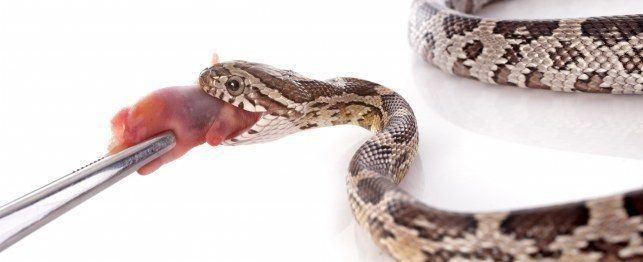
- You need to know the swallowing capabilities of your snake. Snakes can naturally swallow prey that is larger than them, but in feeding them, just make sure that the size of the prey should only have a little difference from the size of its head if its larger from the snake’s head.
- Have a board or a notebook where you can list the scheduled feeding of your snake so that you would know when was the last time they eat. Juveniles can eat thrice or twice a week depending on the size of food given to them while adults can eat once every two weeks.
- Have them checked regularly by a veterinarian. Causes of overfeeding and choking are not only because of the amount and size of food; sometimes, it is because of certain diseases that infest the snakes so you would have a glimpse of their situation.
- If you do not have an idea about the amount of food to give your snake, don’t hesitate to ask help from a veterinarian so that they could guide you how much to give.
Final Thoughts
Overfeeding and choking are two of the most ignored feeding problems because some owners think that it is just a normal process during their feeding session. It is best to just prevent it rather than finding ways on how to help the snake overcome it. As an owner, you must know how to do first aid if in case your snake suffers from overfeeding and choking.
